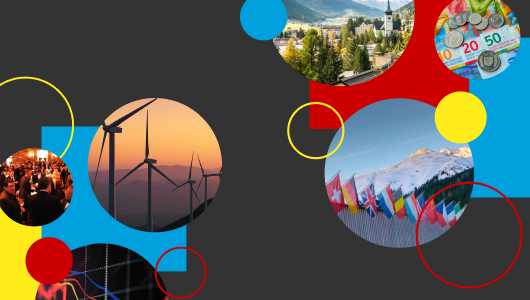
The Future of Humanitarian Aid


View pictures of the event below
New technologies have the potential to revolutionise humanitarian aid initiatives.
The pandemic has exacerbated poverty and created a health crisis across the globe; millions are at risk of climate related disaster and the war in Ukraine has created a major refugee crisis. It is more important than ever that aid is collected, managed and delivered to those in need as quickly and efficiently as possible to alleviate the pressure on the approximately 235 million people worldwide who required humanitarian assistance in 2021. To combat the rising demands and complexities, NGOs, government and corporations are deploying innovative technologies to help them rise to the challenge.
These new technologies, albeit costly in short term set up costs, have the potential to revolutionise humanitarian aid initiatives by providing solutions to some of the biggest challenges facing NGOs.
AI has the ability to rapidly sift through and analyse complex datasets improving decision making while 5G can facilitate biometric security and drone delivery systems, allowing aid to be distributed securely to remote areas. Cryptocurrencies and blockchain technology can reduce distribution costs by 75% and the public ledger that underpins allows for greater transparency, reducing funds lost to corruption.
However, with these innovations come their own array of complexities and challenges, which charities and governments will have to balance to ensure that innovation doesn’t hamper their efforts to help those in need.
This panel discussion organised by the Financial Times, in partnership with Circle, discussed how new technologies such as AI, cryptocurrency and 5G can revolutionise the way humanitarian aid is delivered. We also explored the challenges that come with the modernisation of aid distribution.
World-Class Business Leaders and Speakers
How can technology help deliver resources and aid more efficiently?
Blockchain
How valuable for aid organisations is the transparency of the public ledger that underpins blockchain technology? Could this be an effective solution to the hundreds of millions in aid that are lost to corruption annually?
AI
How could AI facilitate more efficient delivery of aid across the distribution chain?
Implementation
How can NGOs work with private firms to create the necessary infrastructure to make these improvements to their distribution networks possible and prevent unequal access to aid?
Efficacy
Given that technology is only as effective as its underlying data and programming, how can NGOs ensure they are using these tools as effectively as possible?
Smart contracts
How could ‘smart contracts’ built on the blockchain be key in ensuring that aid reaches the right people in the right places?
Upcoming Davos Events

FT at Davos
FT Live events taking place in and around the World Economic Forum Annual Meeting
© Financial Times Live
FT Live and its journalism are subject to a self-regulation regime under the FT Editorial Code of Practice
